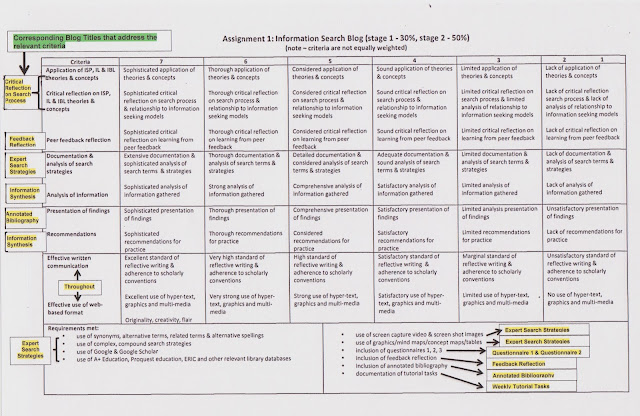Tutorial Tasks –
Week 2
Task 1 – Saving
Black Mountain
1. Structure the
search with double quotes and without double quotes and analyse the difference.
Searching with quotation marks ensures
that the words or concept will be searched for as a whole and not picked apart
by the search engine. For example, typing black
mountain without quotation marks could potentially retrieve all items
that mention black, all items that
mention mountain, as well as all
items about black mountain. This
often leads to way too many search results that are often irrelevant to your
topic.
2. Analyse the
information you find.
In a standard Google search, I’d say
five out of the 10 first search results were relevant to the actual topic.
Other results from the initial ‘saving
black mountain’ search (without quotation marks) included pages to do with
the Black Mountain Savings Bank in America and tourist and holiday spots near
Black Mountain.
3. Analyse the
difference between Google and Google Scholar.
The key difference between these search
engines is that Google Scholar limits its search to scientific literature and
articles. So when you put in ‘saving
black mountain’ (without quotation marks) in the search engine of Scholar, scholarly
articles and books with the key words saving,
black and mountain are retrieved. Adding quotation marks to “saving black mountain” retrieves the
article original article by Powell, Cantrell & Adams (2001) and other
relevant texts that cite the original article.
Task 2 – Sand
Mining
1. Find where this
site is located.
North Stradbroke Island, Queensland.
2. Analyse the
information on different perspectives on the sand mining at this location.
In terms of being against
the sand mining on Stradbroke Island, I’ve found the
following link very informative: 10 compelling reasons to stop sand mining. Alternatively, a positive aspect of sand mining
on Stradbroke Island is that it creates local jobs and helps the Island’s economy. Also there are a number
of different rehabilitation projects happening on the island by the mining
company that without the mining, would not be happening.
3. Design an
information learning activity using this as a topic for either middle-upper
primary, secondary or tertiary.
Set up a purposeful problem-based
inquiry project for the students to complete; for example – a student debate, newspaper
article (research and interviews), a biology report. Organise an excursion or a
school camp to the island where students can interview/ investigate/ tour the
CRL mines. Students can gain different perspectives by interviewing and asking
questions of the workers/management staff and talking to local environmentalist
and other community members who live on the island.

